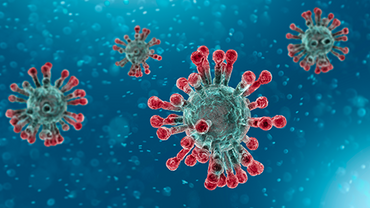Earthquakes in Türkiye and Syria: infectious diseases expected to be a concern in two to four weeks
Immediate health needs following earthquakes in Türkiye and Syria are mostly related to trauma and the disruption of healthcare, however, infectious disease threats may be concerning in the following two to four weeks.
Food and water-borne diseases, respiratory infections and vaccine-preventable infections are a risk in the upcoming period, with the potential to cause outbreaks, particularly as survivors are moving to temporary shelters.
The damaged utility infrastructure, including water and electricity, causing limited access to clean water, inadequate sanitation and hygiene facilities, improper refrigeration, and cooking systems, may increase the occurrence and transmission of food-and waterborne illnesses.
A surge of cholera cases in the affected areas is a significant possibility in the coming weeks. Cholera is a concern in war-torn North-Western Syria, where authorities have reported thousands of cases as the country has been trying to control an outbreak since September 2022. A planned vaccination campaign disrupted by the earthquakes should be accelerated.
Additionally, other food and or waterborne diseases can cause outbreaks in camps: viral infections such as hepatitis A, norovirus and rotavirus, infections caused by parasites or bacterial infections. The Availability of clean water and control of food handling are among the top measures to avoid the spread of these diseases.
Respiratory infections are a particular concern, especially in cold weather, and the risk of outbreaks increases as survivors are moved to temporary settlements or campsites, where crowding cannot be avoided.
COVID-19, seasonal influenza and other respiratory viruses are circulating in moderate to high levels in the area. The very young and the elderly are more vulnerable to complications from these infections and in case of outbreaks, additional pressure will be placed on the already damaged healthcare systems.
Similar to respiratory viral infections, crowding conditions in temporary settlements can increase the risk of transmission of vaccine-preventable diseases such as measles, varicella, meningitis, or poliomyelitis.
Rescuers are at increased risk of tetanus from injuries and open wounds caused by contact with debris. Tetanus prophylaxis should be offered as per existing national guidelines.
Ensuring continuity of routine vaccinations and addressing prior vaccination gaps is essential in the affected regions from Türkiye and Syria.
Providing access to healthcare for trauma and other urgent care, shelter, potable water, and adequate sanitation and hygiene facilities will mitigate the risk of infectious disease threats.
Setting up health surveillance systems by public health staff will facilitate the early warning and detection of outbreaks. International organizations are planning to deploy mobile laboratories in the affected areas and they can also provide expert assistance to both affected countries.
Risk communication and community engagement interventions are particularly important to communicate and engage with individuals and communities to help them stay protected against infectious diseases.







